When someone talks about “book rankings” what do you think of?
Category rankings or keyword rankings?
Surprisingly many authors focus on Category rankings, placing too much emphasis on these numbers while actually missing the bigger picture.
As it turns out, there are benefits to ranking well in a category, but those are only by-products of something much more important.
If you want increased sales, you’ll need to focus on the right one.
- What affects Category rankings
- What affects Kindle Keyword rankings
- What you should do to improve them
Table of contents
Although you might think you understand this section, I assure you, you won’t want to miss this article. This article was inspired by reading an authority's article that kept mixing the two in their own article.
Kindle Category Rankings and Their Worth
Now, we all know about selecting categories for our books. However, let’s talk about what makes one book rank better than another:
Your book category ranking is solely dependent on your book’s Amazon Best Seller Rank (ABSR) as compared to the other books in that same category. So, if your book is in the Sci-Fi Military category and has a ABSR of 24,004 it will rank better in that category than another Sci-Fi military book that has a ABSR of 24,005. If 24,004 is the best ABSR for all books in that category, than that book is the #1 bestseller in that category.
So, Kindle category rank is solely dependent on your Amazon Best Seller Rank (ABSR)
Since ABSR is solely dependent on sales and KENP pages read (with factors based on time and intensity over time), the only way to improve your Category rank is to sell more books.
Now, I get the allure of having a good Category rank. Getting the #1 bestseller status on a niche category can give just about any author a writing high. But, when does category ranking actually matter?

In truth, there are only two instances where I care about my category rankings:
- If I can rank #1 in a category and thus get the “Bestseller” mark
- If I can rank in the top #20 for a popular category that readers actually care about.
If I can’t do either of these then who cares…Let me explain each below.
The Mark of the #1 Bestseller
If you rank #1 in a category, your book is marked as a bestseller. This rocks because in any search results, your book will have something that makes it stick out and even helps to social proof your book.
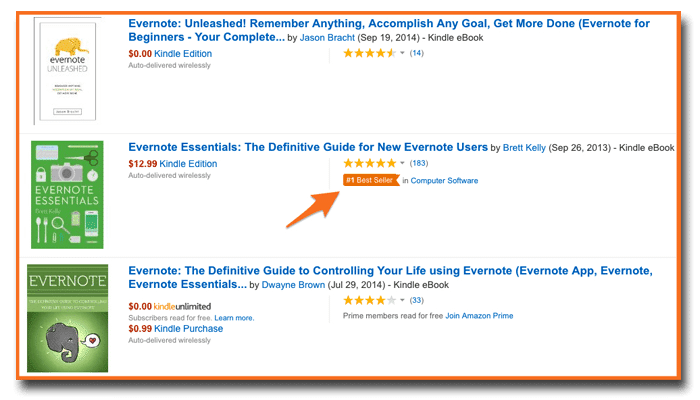
I don’t know about you, but if I am looking at potential books to buy, the one marked bestseller will always catch my eye. The way I see it, it’s a bestseller because other people liked it.
So what does this mean?
A best seller mark increases your conversion rate which thus increases sales.
Ranking in a Popular Category
The other reason why I would care about category ranking is because my book is in the top #20 for a popular category.
The only other way a category can help you get more sales is if that category is one that people typically go to to see what books are doing well and thus look for their next read.
I’m a huge Sci Fi military book fan. So occasionally, I will go to that category page and check to see what books are there. But I only go as far as the first page – which only shows the top 20 for that category.
But this isn’t something I do often or for other categories…just the one – I'm kind of a sci-fi nerd…can you tell?
So, the idea is that if you can rank on the first page for a category that people actively seek out (not some niche obscure one), then your book could get more traffic and subsequently, more sales.
However, remember that “popular” also usually means more competitive. So….yeah.
Better Keywords & Categories Fast
See why over 47,000+ authors and publishing companies use and love Rocket to help them sell more books.
Get Publisher Rocket Now!But if you can't do either of these?
Only these two situations with categories help authors sell more books and is therefore, the only time I care about Category rankings…that’s it.
So, if you can't get the “bestseller” mark in some category or rank in the top 20 of a popular category, then don't worry about it. All you need to do is focus on increasing your sales…
Kindle categories only help when you're a best seller or in the top 20 in a popular categoryClick To TweetKindle Keyword Rankings and Their Worth
So, if Category rankings are about how your book ranks compared to other books in the same category, what are Kindle Keyword rankings?
When someone types in a certain search term for Amazon books, the order that the books show up is super important. This is called Kindle Keyword rankings.

Basically, you work to get your book to rank for a particular search term. If the search term is popular and you rank at the top, then you'll get a significant portion of those clicks which equates to more sales.
But keyword rankings are useless if that target keyword isn't one that people actually type into Amazon. Or it's a term that is too competitive. So, make sure there is a hungry market for that keyword and enough room for your book, or else it's a bust. The importance of keywords is true for fiction authors as well as nonfiction.
How do you figure this out? Well, you could do some good ole fashion research and check the levels of interests in books as well as their competition. Or, you could use a tool to help you figure out how popular a keyword is, and how hard the competition is as well.
As many of you know, I'm a big fan of KDP Rocket which helps me with the above…that's because I designed it that way.
How to Rank for a Kindle Keyword
Okay, so let's say that you've found a good keyword…now what?
Once you've identified the right keywords, then you need to work on optimizing your book and Amazon sales page so as to let the Amazon search engine know you are a good fit for that keyword's rankings.
To help you with this, I have a complete ebook on the steps and factors required to ranking better in a book search on Amazon. You can get it here.
Get Your Book Discovered
Look over my shoulder as I show you how to select the best keywords and categories so you’ll make more sales.
Click here to Sign UpCategory vs Keyword Rankings
So which one is better?
Category rankings only work to sell more books if:
a. You can get #1 bestseller mark
b. You can get in the top #20 for a popular category
AND
Keyword rankings only work to sell more books if:
a. You find a keyword that people are actually typing into Amazon
b. Doesn't have too much competition and therefore you can rank for it
But here is the magic sauce that tips the balance if someone NEEDS to pit the two against each other:
If ranking well for kindle keyword means more sales, then that means your overall Amazon Best Seller Rank (ABSR) will improve. Improve your ABSR and you also improve your Category Ranking.
So, your ranking for a particular keyword ultimately increases sales, and thus increases Category Rankings.
Which one do you strive for?
More Keywords and Categories:
If you're interested in more articles like this one, check out our hubs for how to choose the best keywords and categories, as well as our overview of Publisher Rocket.

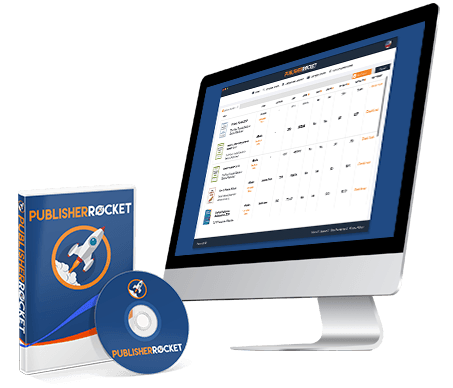
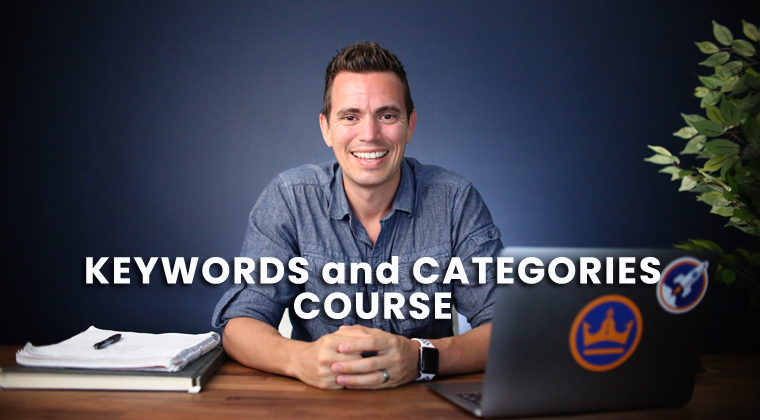

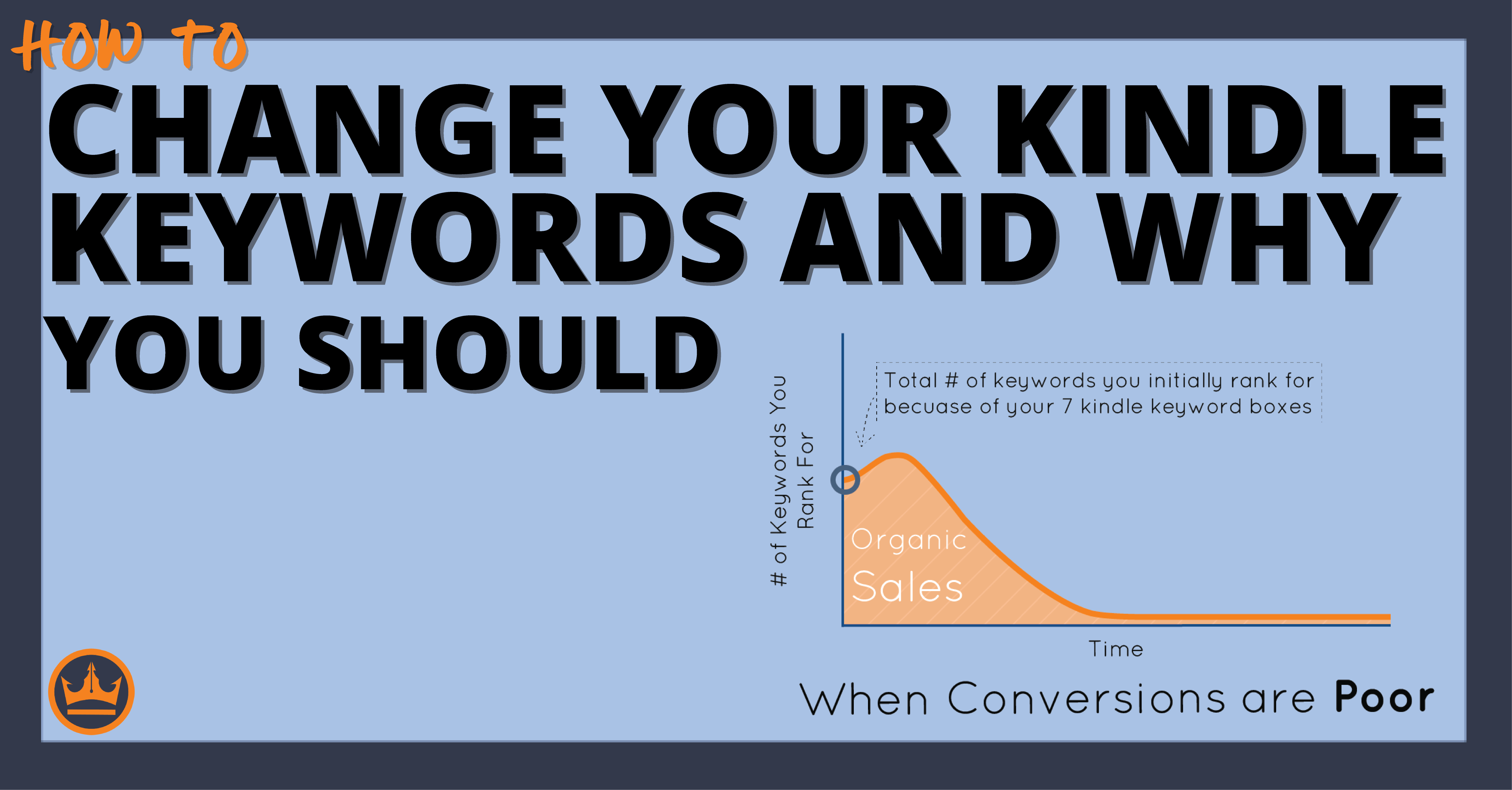
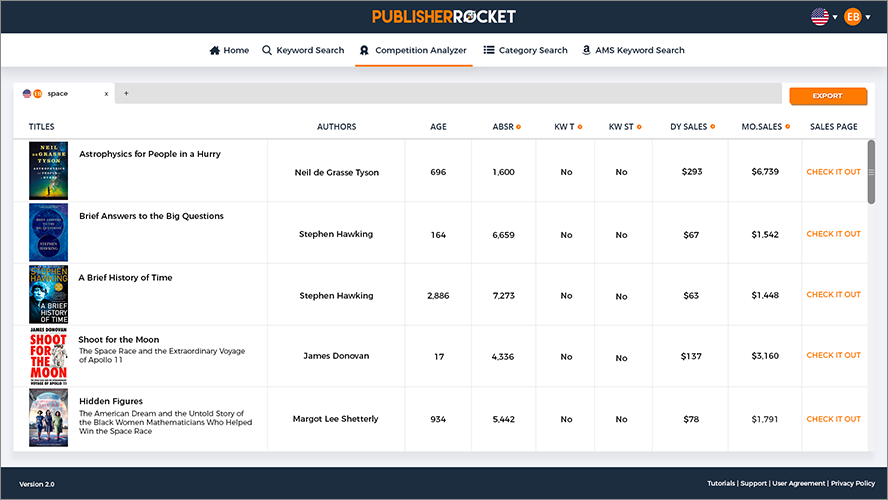
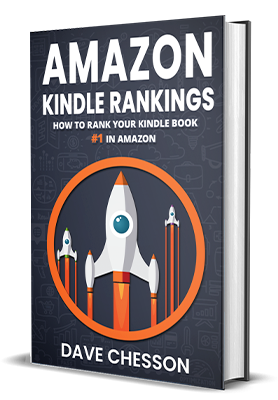
Hey Dave,
I guess I did focus on category rank with my first book, probably for vanity reasons! The orange banner high is definitely real. I want to incorporate a keyword focused strategy next time around. I honestly I just kind of threw them together as an afterthought.
Yeah, and that’s usually what happens. However, I strongly believe that book marketing research (keyword research is a part of that) should be the first step before deciding to write a book. Knowing that information before you get going is powerful through all facets of the writing/publishing process.
I hear you. I think I’m gearing up to start a new book within a month or two and I’ll be getting kdp rocket. I saw your guest post at Carol Tice’s site. You’re kiling it man. Thanks for providing great agenda free info.
Absolutely and no problem. I hope you like it – yeah Carol is super awesome and it was an honor to write for her.
Dave, this post has me reconsidering my emphasis. After reading David Gaughran’s, Let’s Get Visible, I was convinced that category rank was my best chance at getting more eyeballs on my book–and subsequently more sales. However, you make a strong case that keyword rank can help sales which will boost category rank; and as far as I can understand the inverse is NOT true (ie: category rank does not boost keyword rank). Is that correct?
Also, now I see why KDP Rocket (which I’m enjoying-thanks RSP podcast) is all about the key words. I had been wondering why KDP Rocket didn’t include any tools for researching categories but now it makes sense.
p.s. I’m dabbling in Amazon ads this week (which of course ranks for keyword searches) so I’ll put the “Rocket” to the test with optimizing my ads for search rank 🙂
Holy crap…I didn’t even think about that! I mean…yeesh, it would be perfect for that sort of research. Ha! Let me know how that goes. I’m going to get to work as well. Glad you’re liking it! With respect to Category rank affecting Keyword rank….sort of. If you have a high category rank, then that means you have a high ABSR. ABSR plays into your keyword ranking.
i had been using the free key words app on the scientific seller site but the added value of KDP Rocket is it gives an estimate of how many searches for a given keyword so I know how competitive my ads will be. Great stuff! Will keep in touch with results.
Dave, thank you for the post and also for KDP Rocket, I am really enjoying it, great & very helpful product! Here is my question about keywords: Should one stick with the same keywords all the time of his book’s life? Or should he change it according to the book’s popularity? Here is an example what I mean: I made a list that shows the keywords I like showing the number of competitors and the number of times searching that particular keyword in a month. At the beginning I am planning to go with the less competitive but highly searched keywords. As the book gets (hopefully) more popular should I change its keywords and go for higher searches (but where usually the number of competitors are higher too)? Same question with categories. First I’ll try to go with categories are less competitive so I could be among the top 20 quickly. But what if this is already realized. Should I change the category and choose one that people are searching more for but competitors are also higher?
Hi Andras! Glad to hear it. I’ve used that tactic with Keywords before. After building enough momentum, I’ve changed mine to then target more competitive, but juicer keywords. In truth, it’s been a mixed bag of success. Sometimes it works and sometimes it doesn’t. Working with many authors, I’ve heard similar stories as well, to include authors with books that didn’t have sales changed their keyword and breathed new life into them. As for Categories, so long as your not trying to target a category up the chain,then you’re good. What I mean is, say for example you’re targeting Sci Fi Military. The chain would be “eBooks> Science Fiction & Fantasy >Science Fiction > Military”. So your category would be Military. But to target “Science Fiction” would be a waste because if you’re #1 in “Military” your book may also be #1 in Science Fiction….as in, you’re competing with all categories ‘up the chain’ already. I hope that helps.
Thanks for this post, Dave – truly helpful. I’m terribly new at all this, so my question may be silly but it popped up for me whilst reading … is there any cumulative or “crossover” impact for you as the author? Here’s what I mean – say I have one book that manages to top out in its category as a bestseller, and then I write and publish another book – let’s say it’s in an entirely different category altogether, unrelated to the first (say the first is a novel and the second is self-help or reference or what have you) – does the fact that I’ve published a category bestseller have any impact on rankings for the new differently-categorized book at all? Or is it strictly based on titles?
Hi Viorica. Nothing I’ve ever seen from testing and research has suggested that an author’s previous success in a different niche would affect their keyword rankings. However, the success of a book could help out future book sales, if you mention your other books in the successful book. Creating a page like “Here are my other books” and then putting links to them definitely increases the sales of the other books.
Thanks Dave… This really has had me wondering which has been best for about 2-3 months. Great to get some clarity on it.. and thanks for the book!!
Thanks Jon and yeah it can be confusing. Glad you enjoyed it!